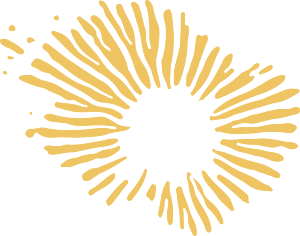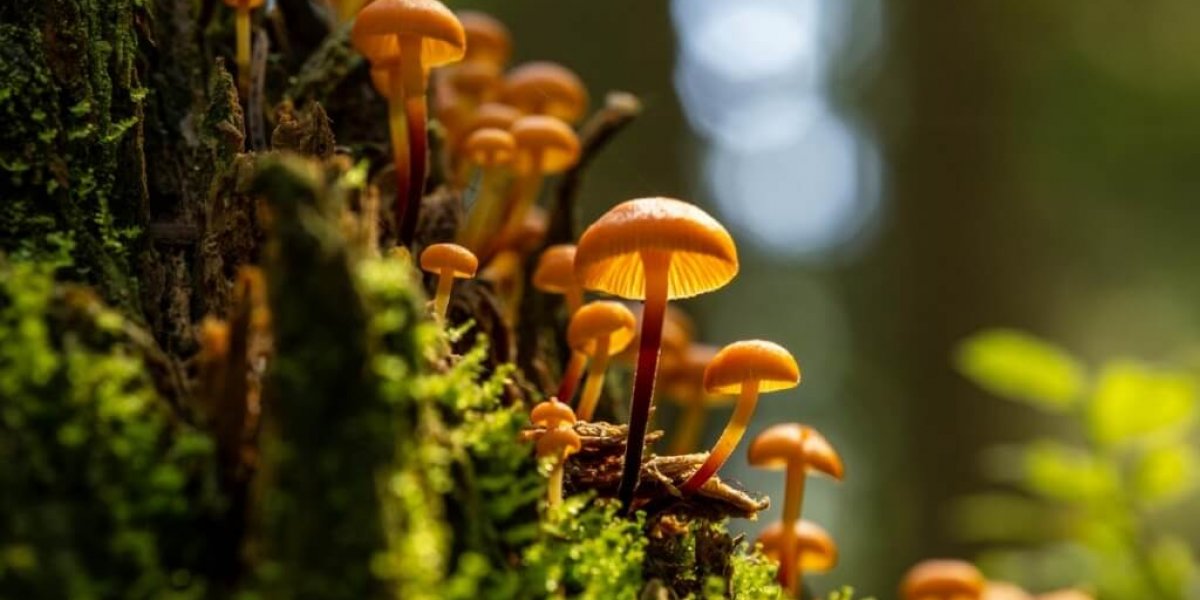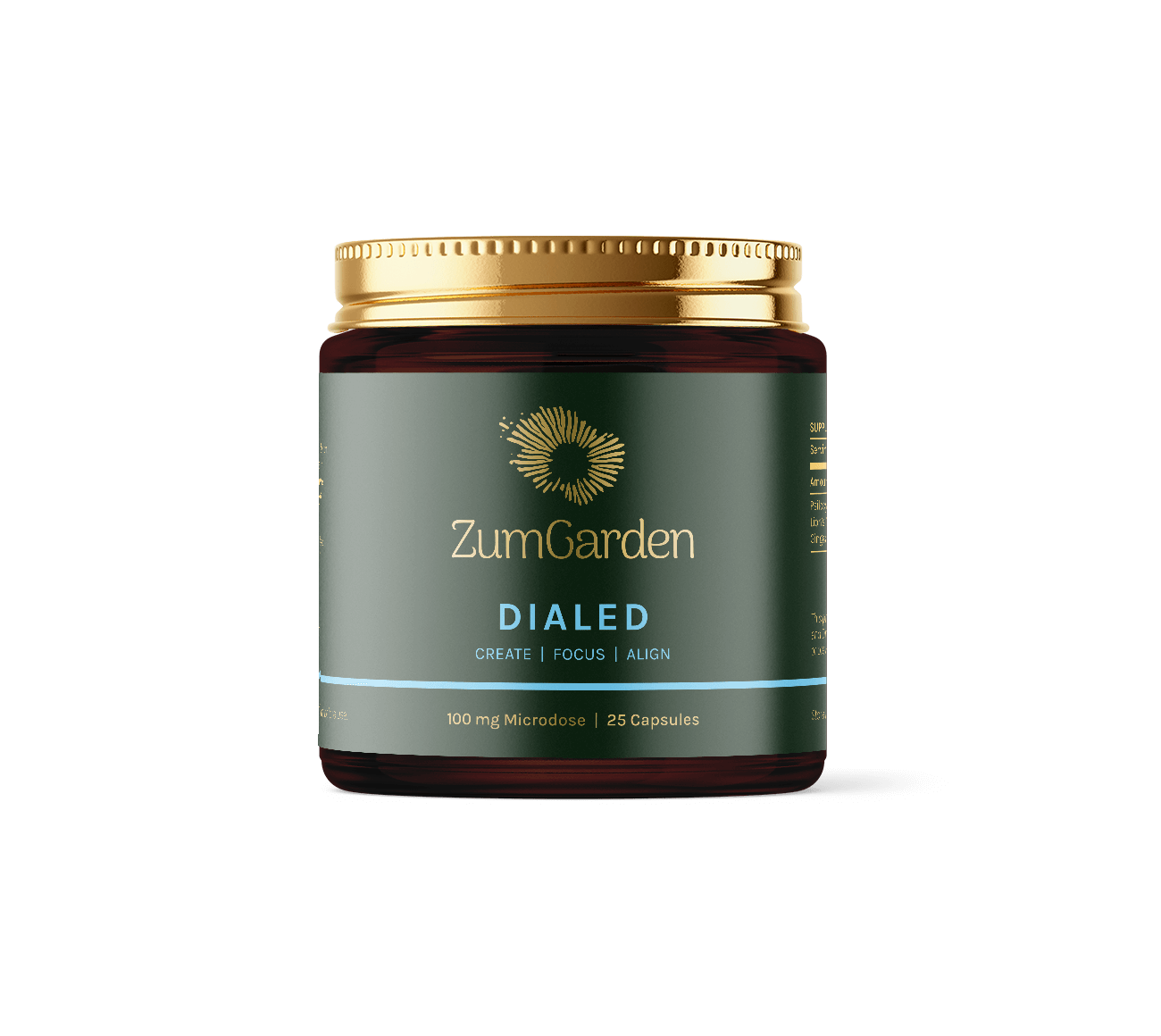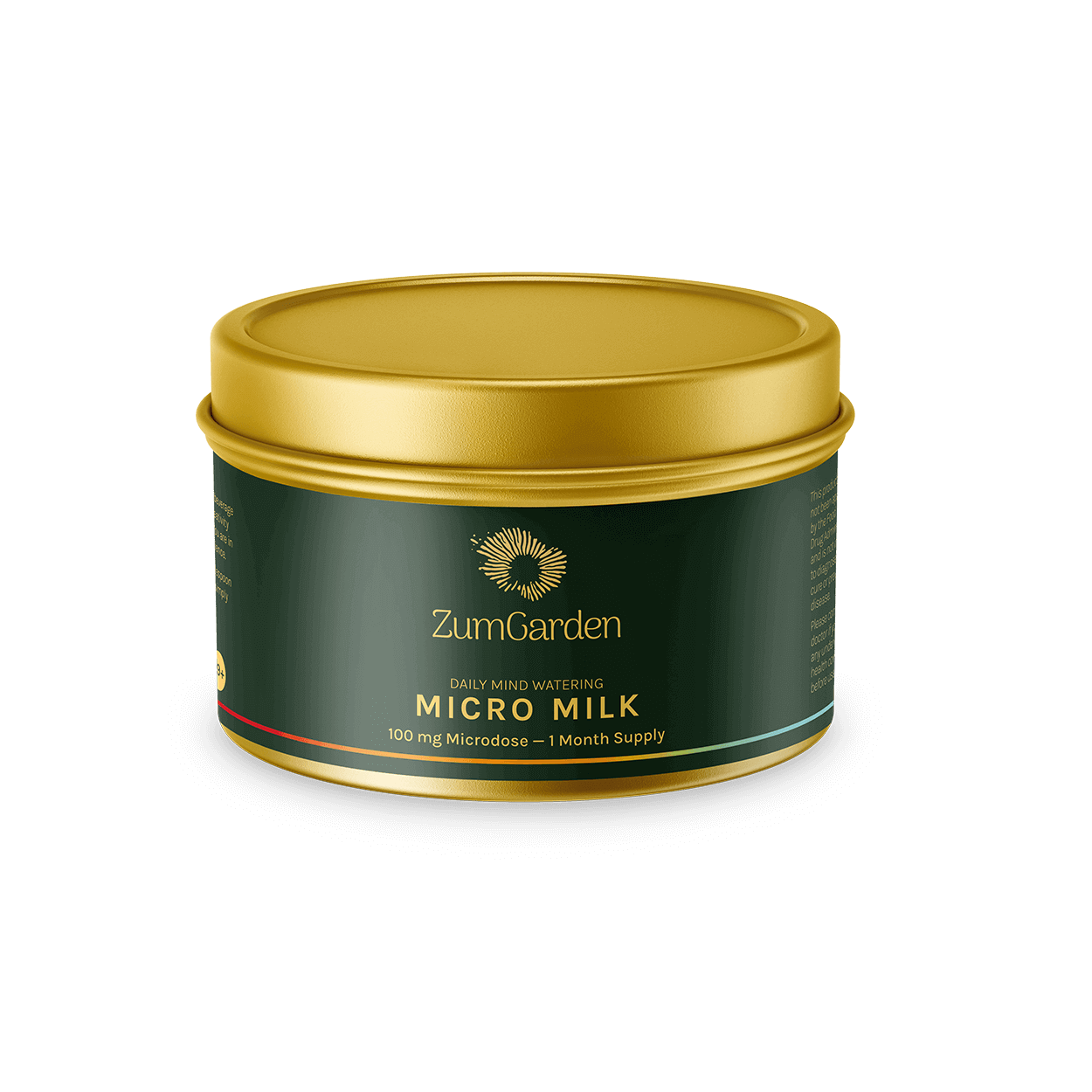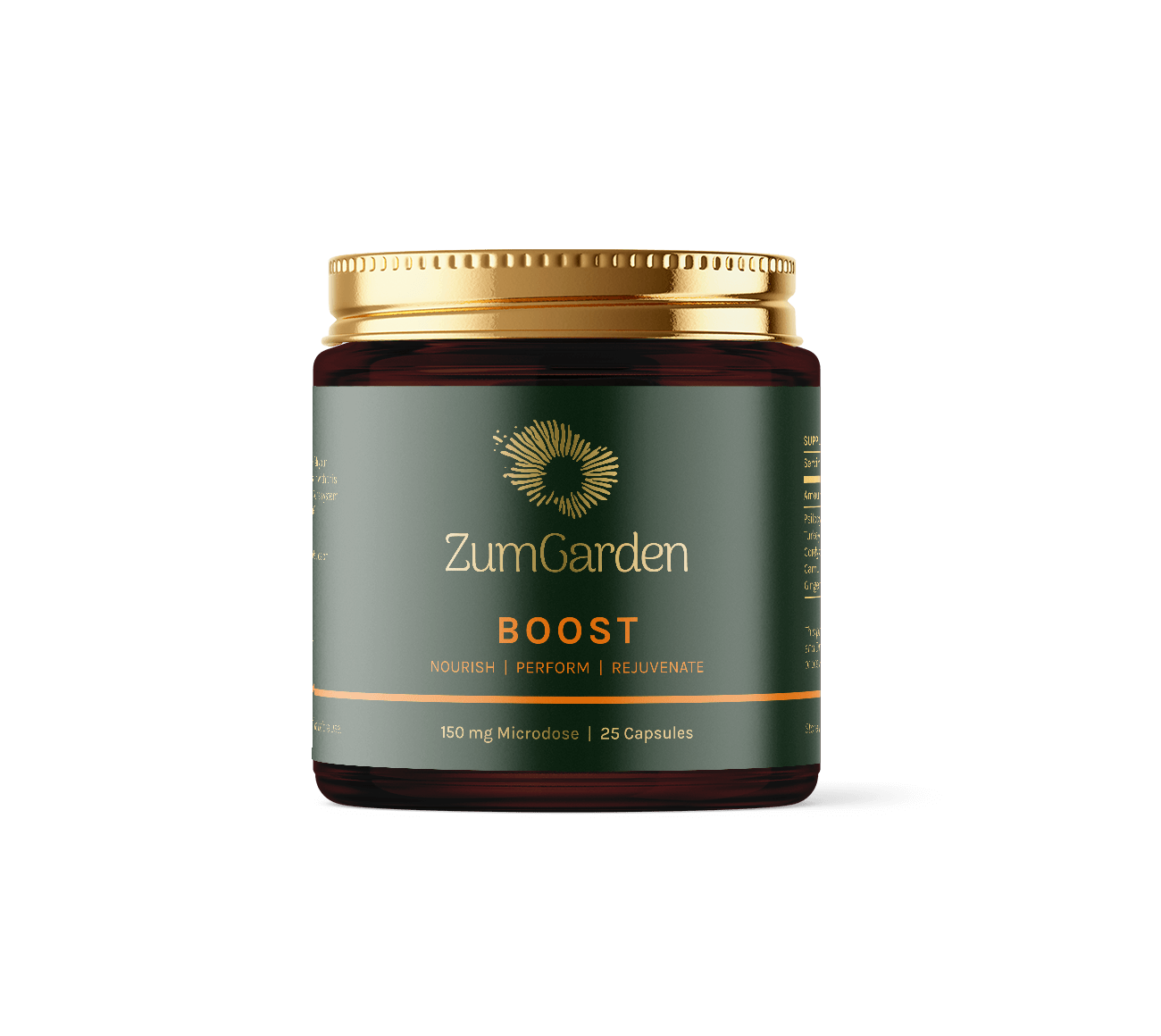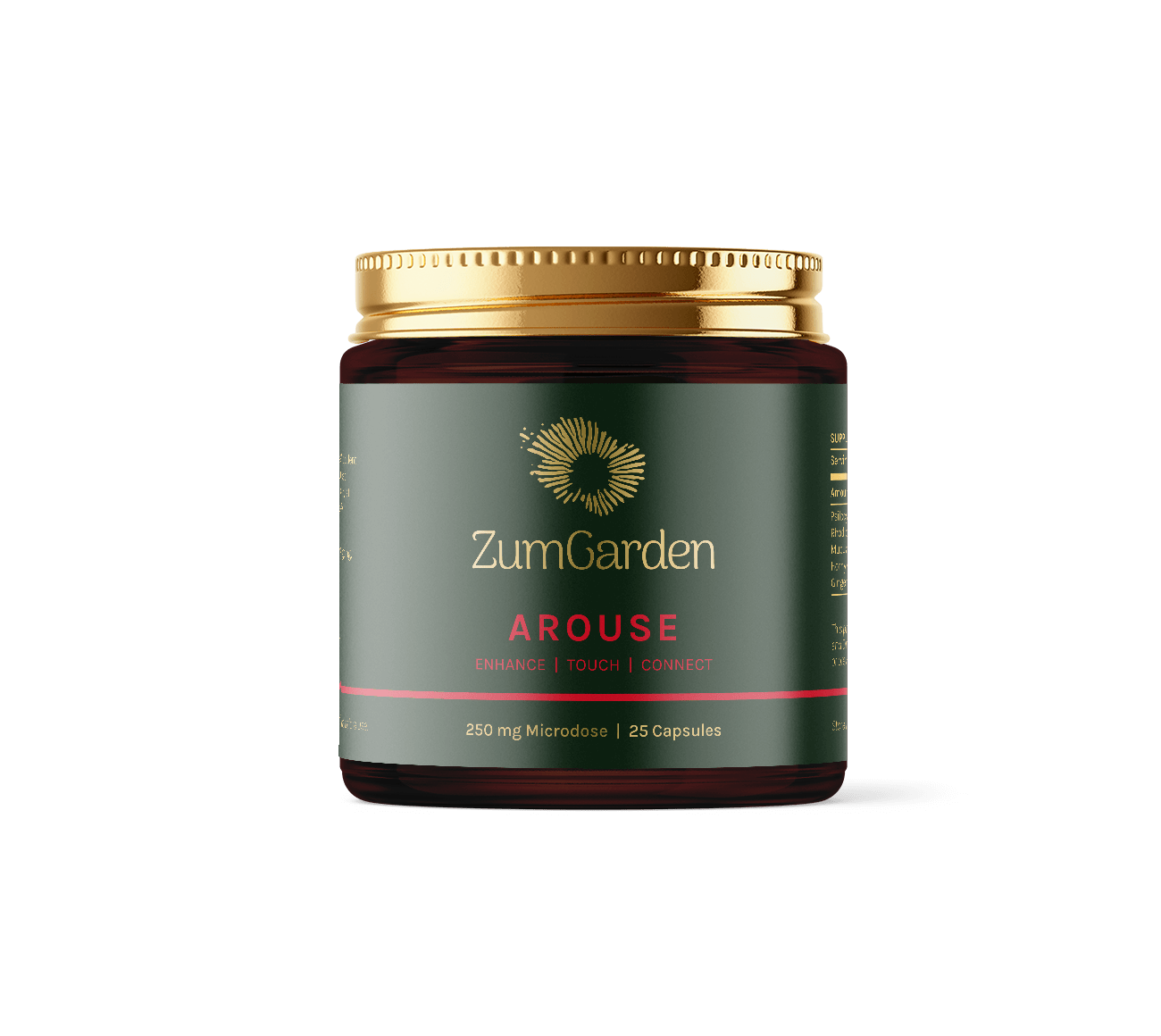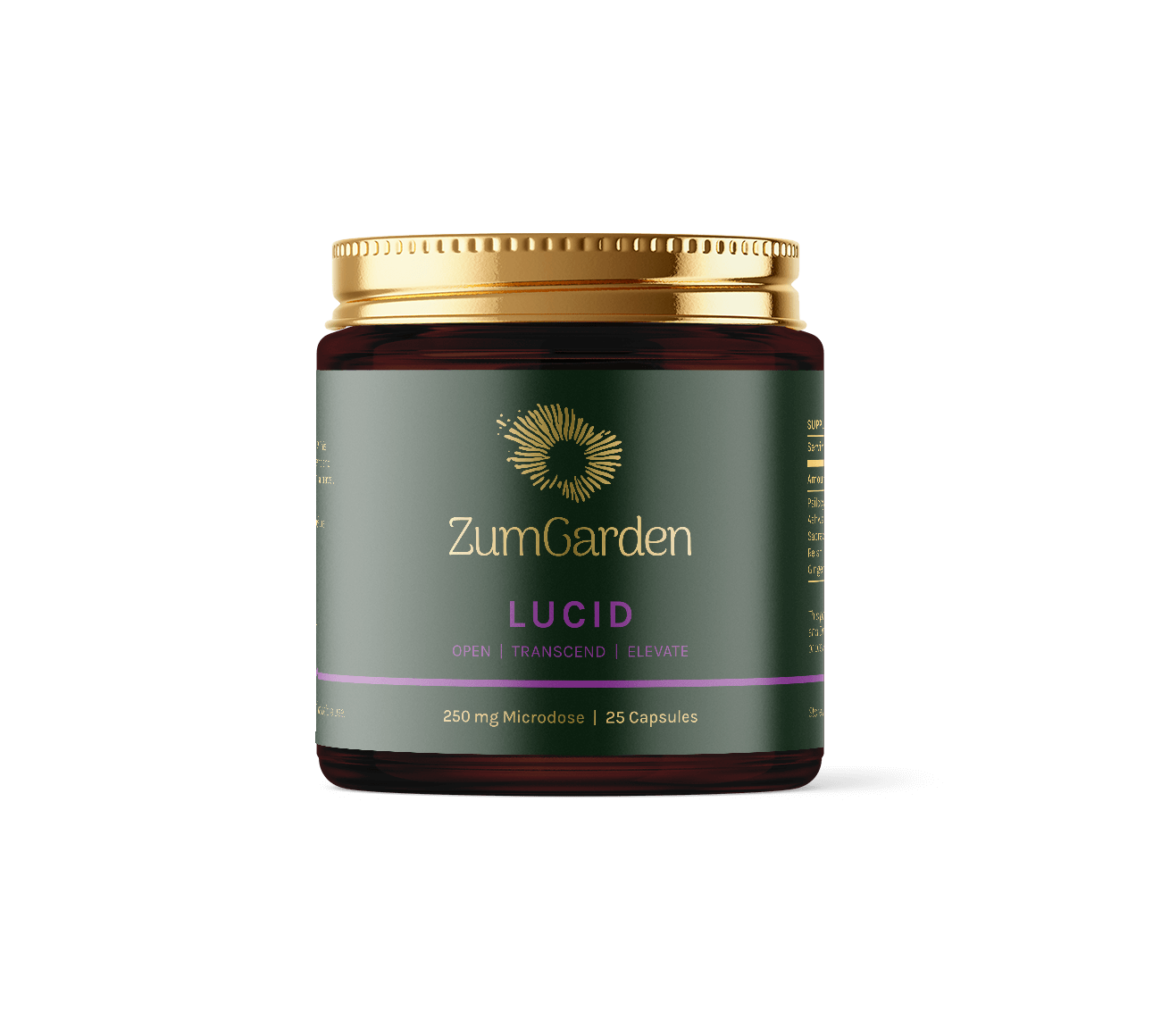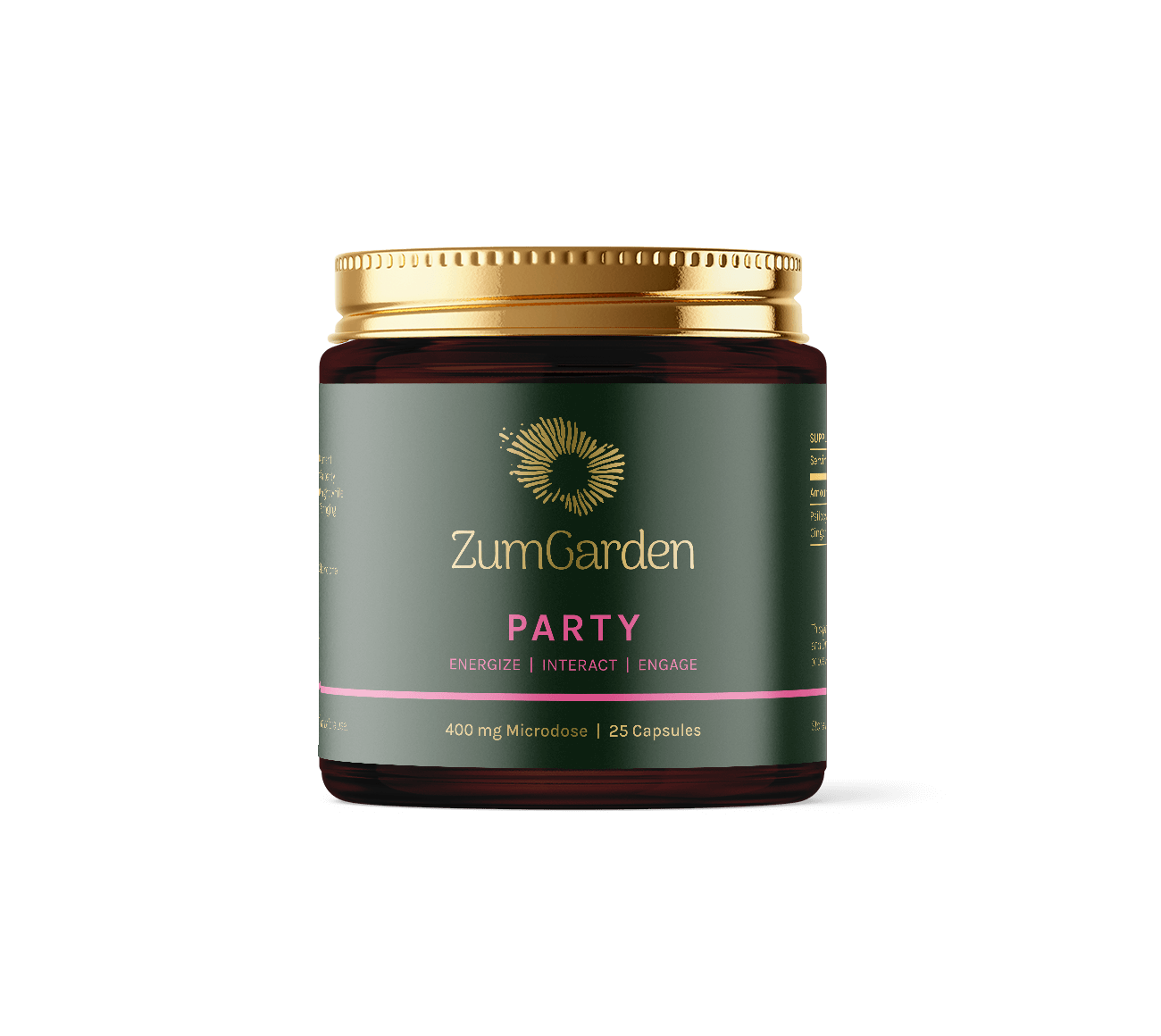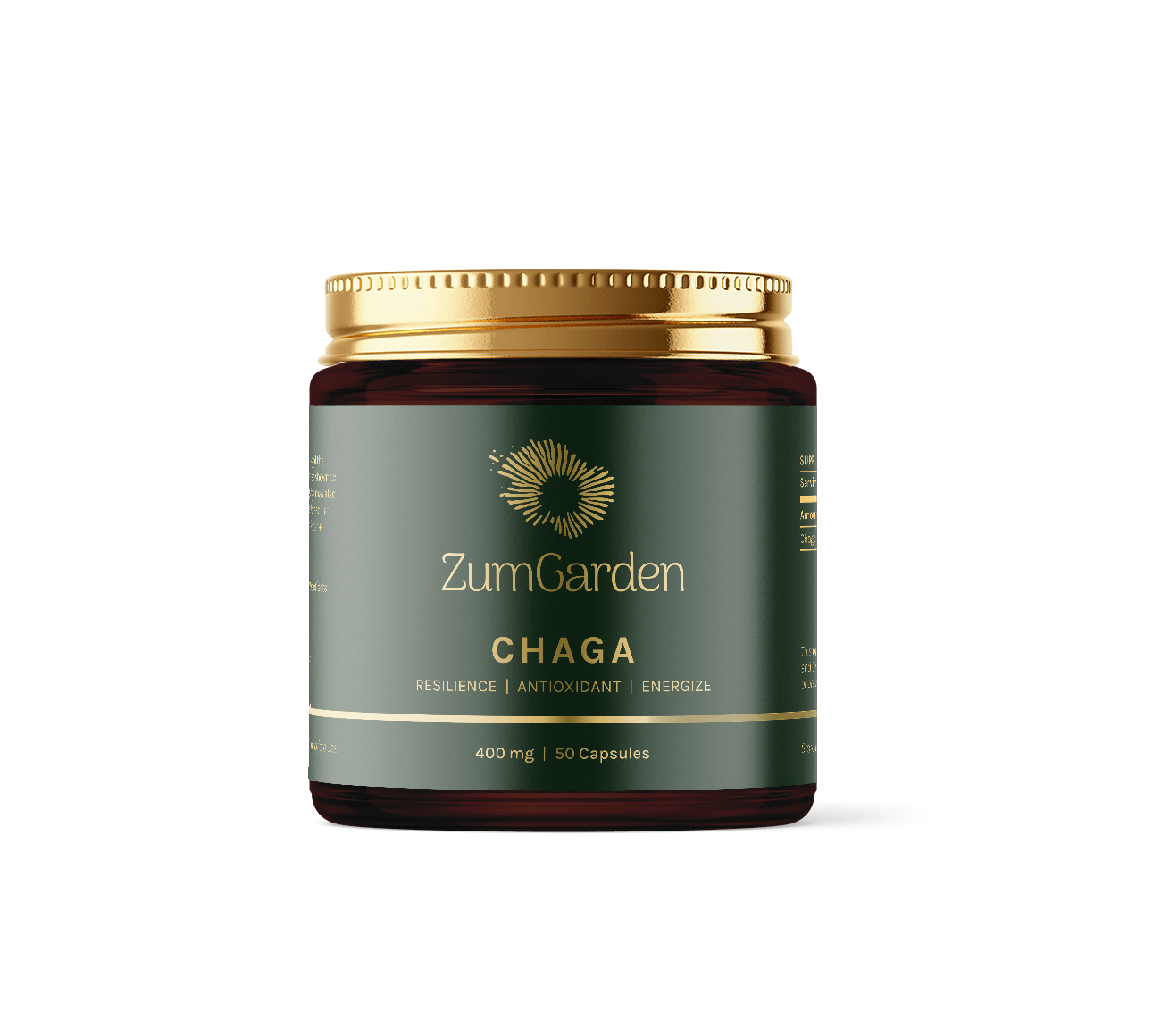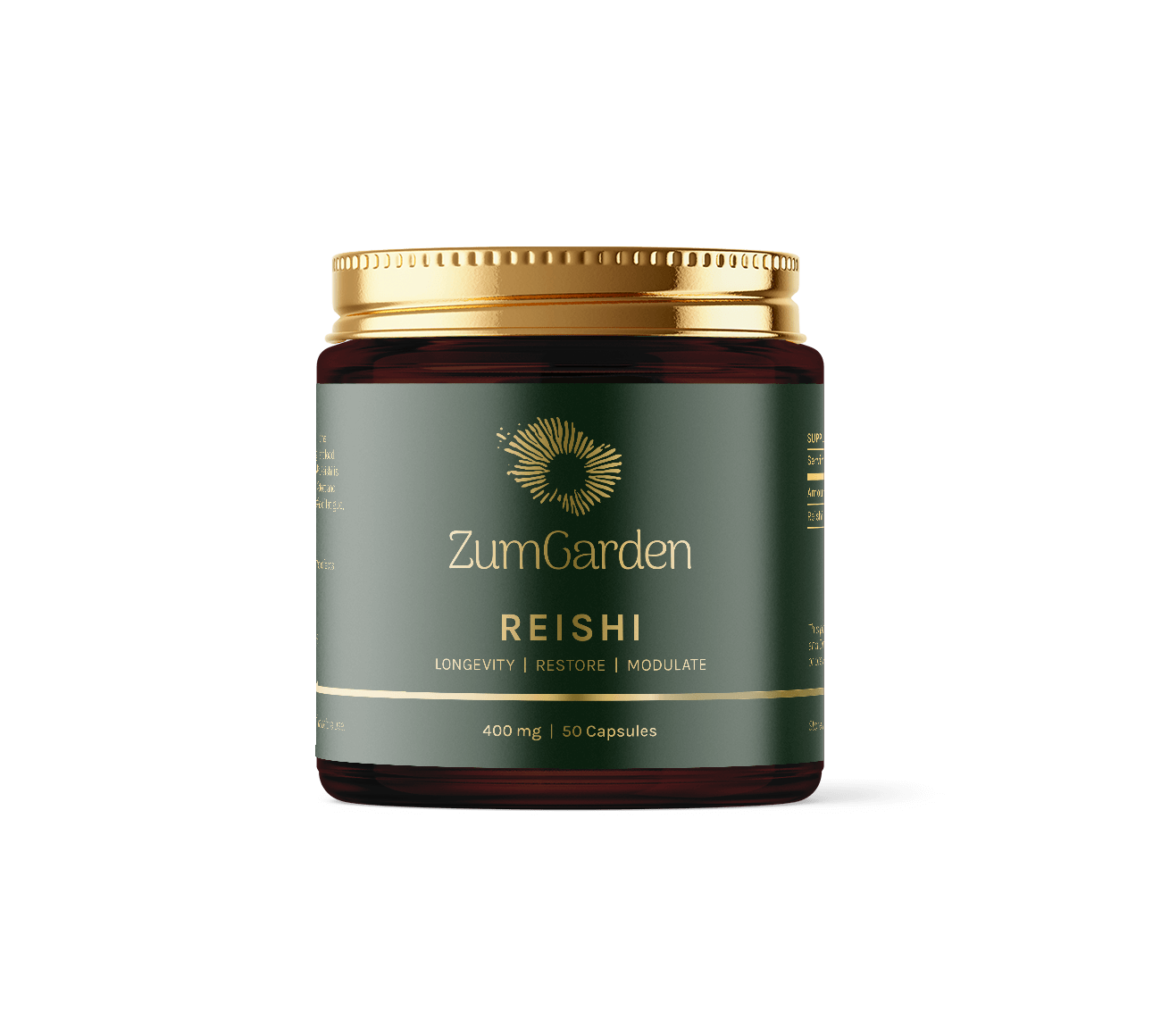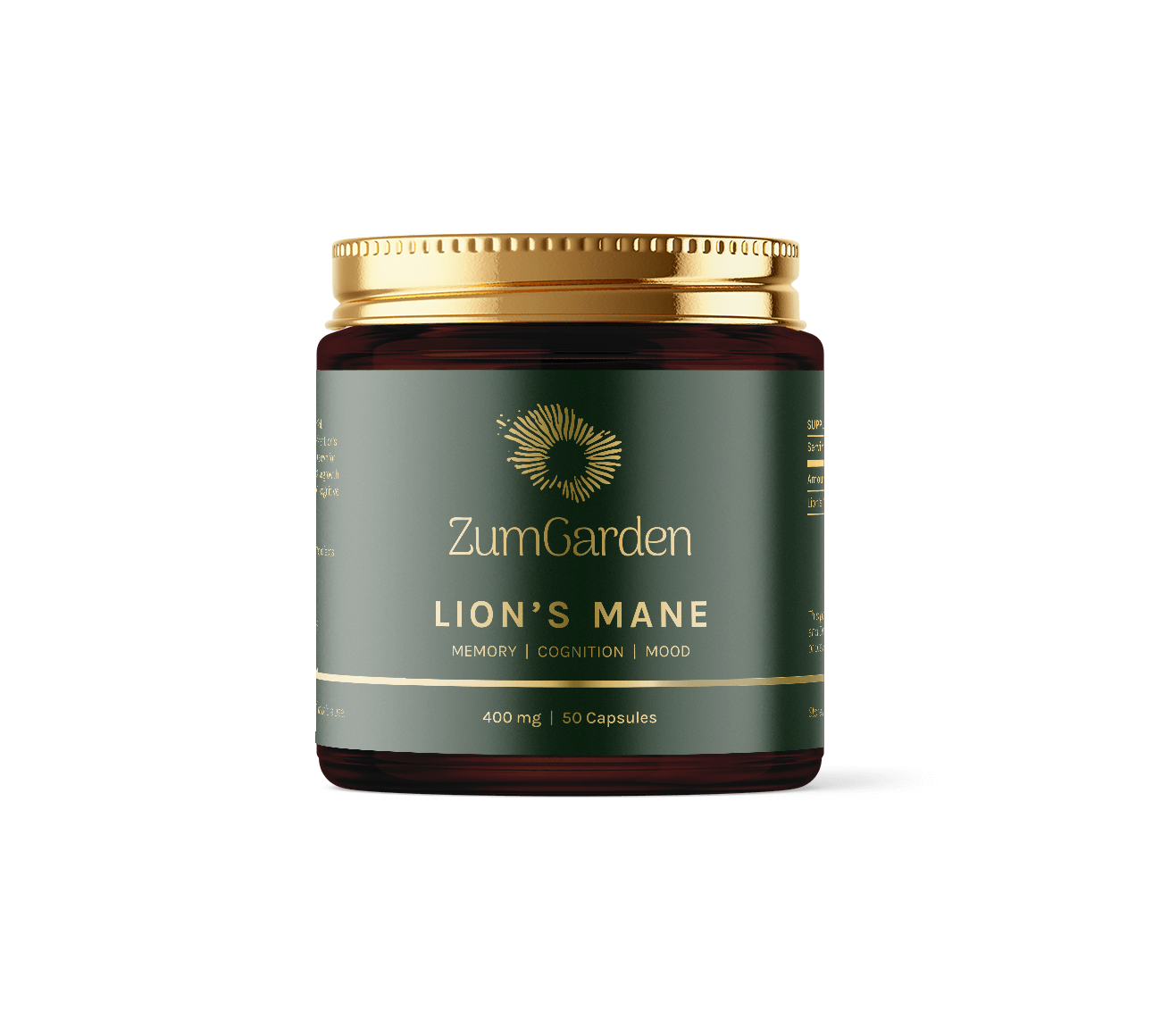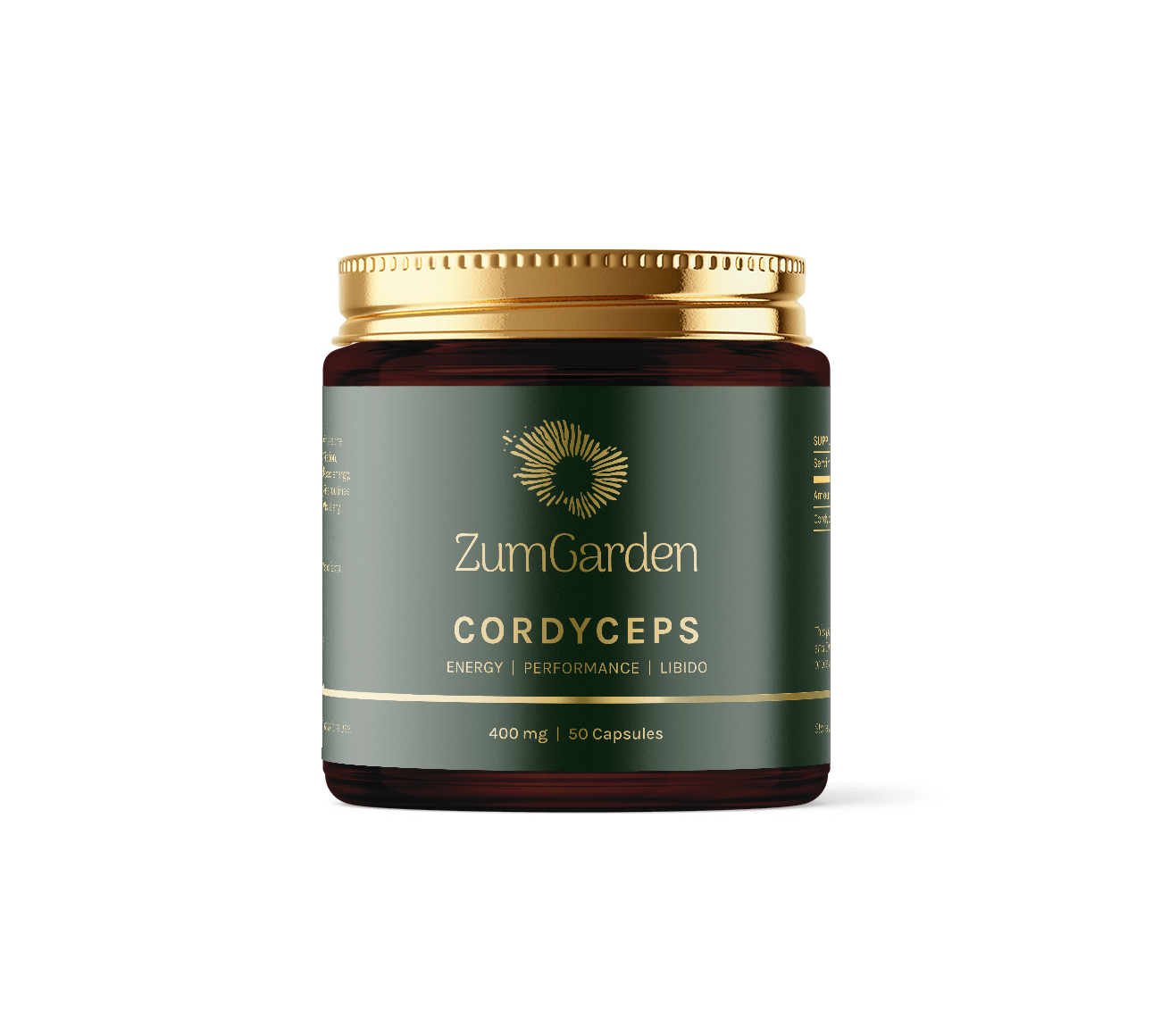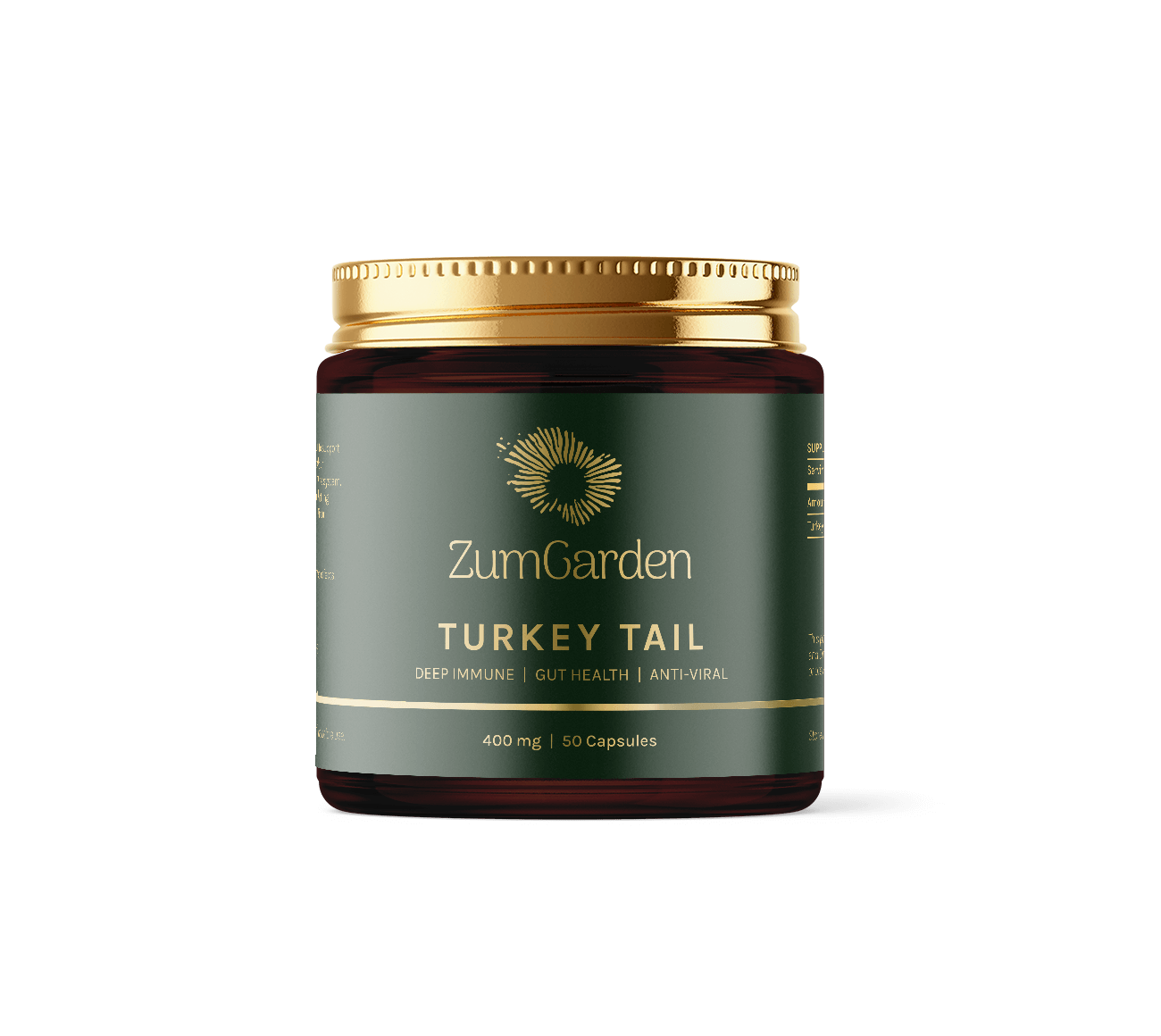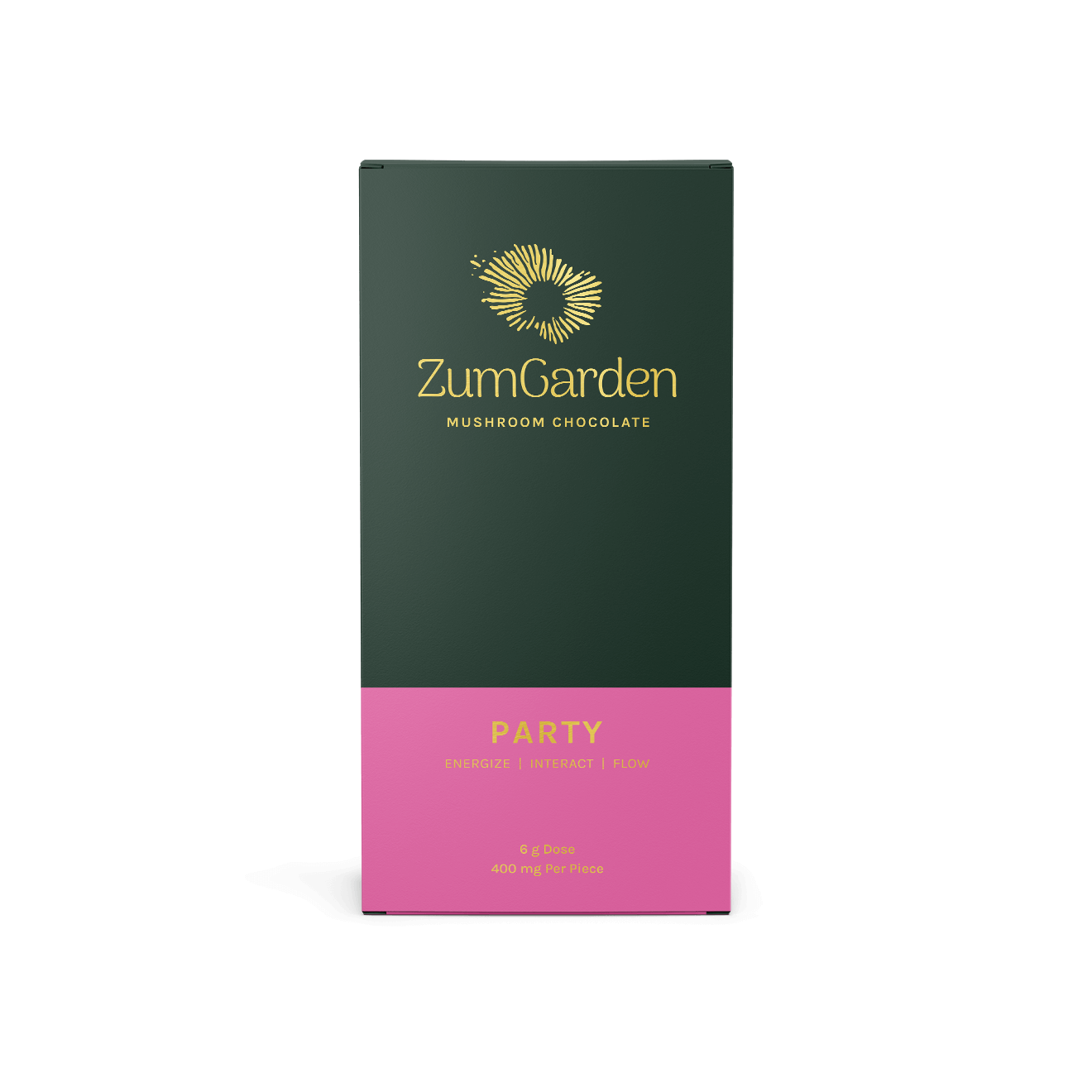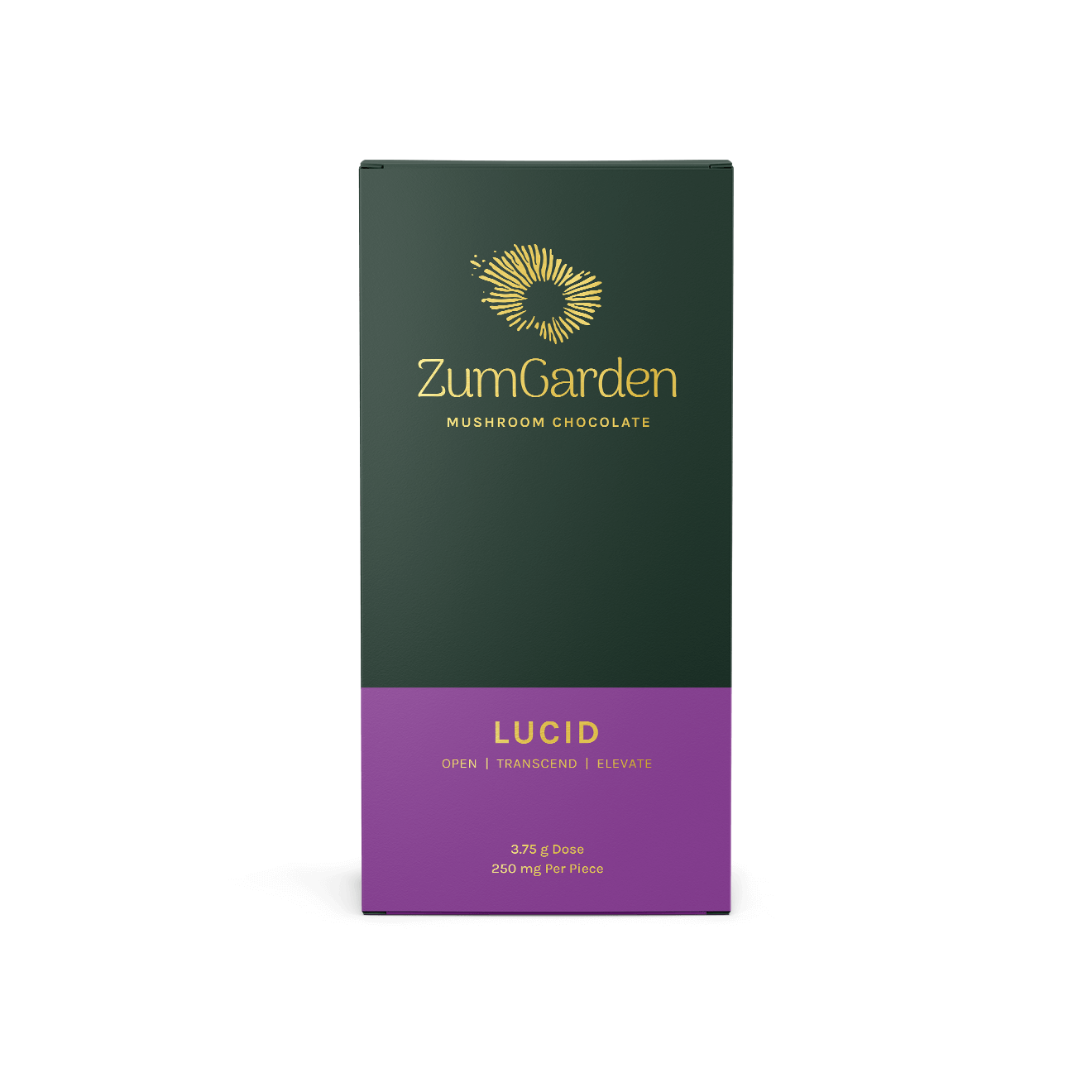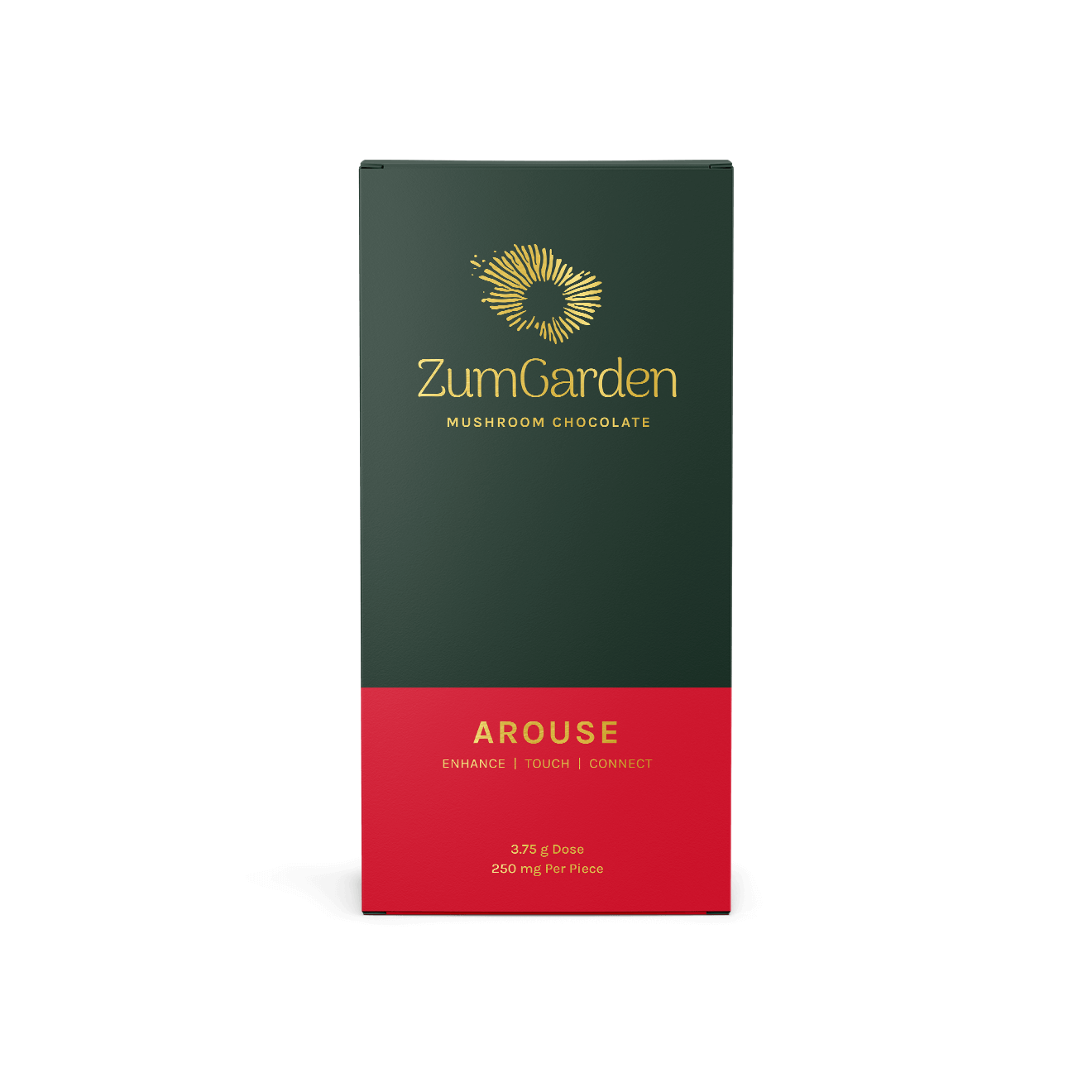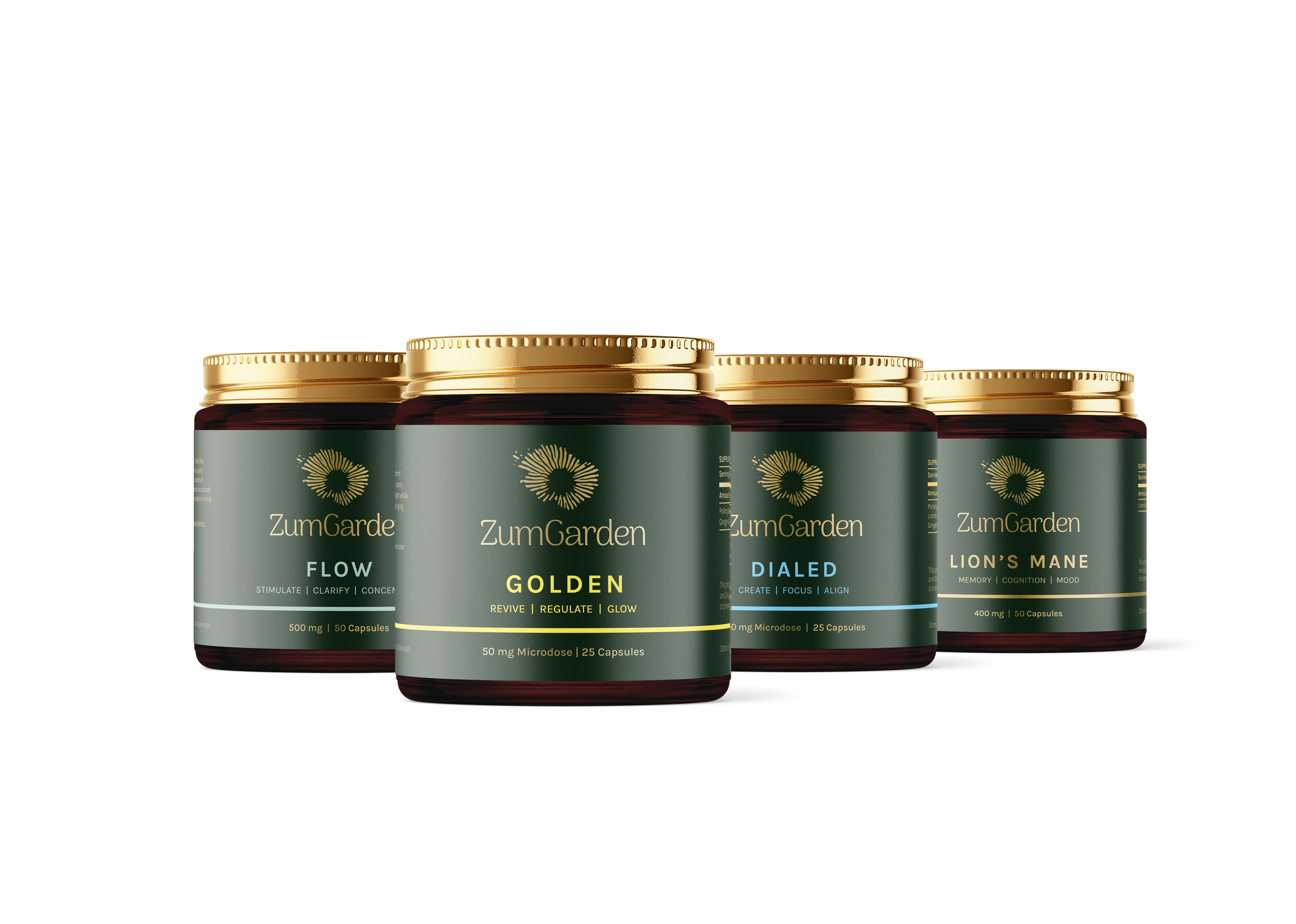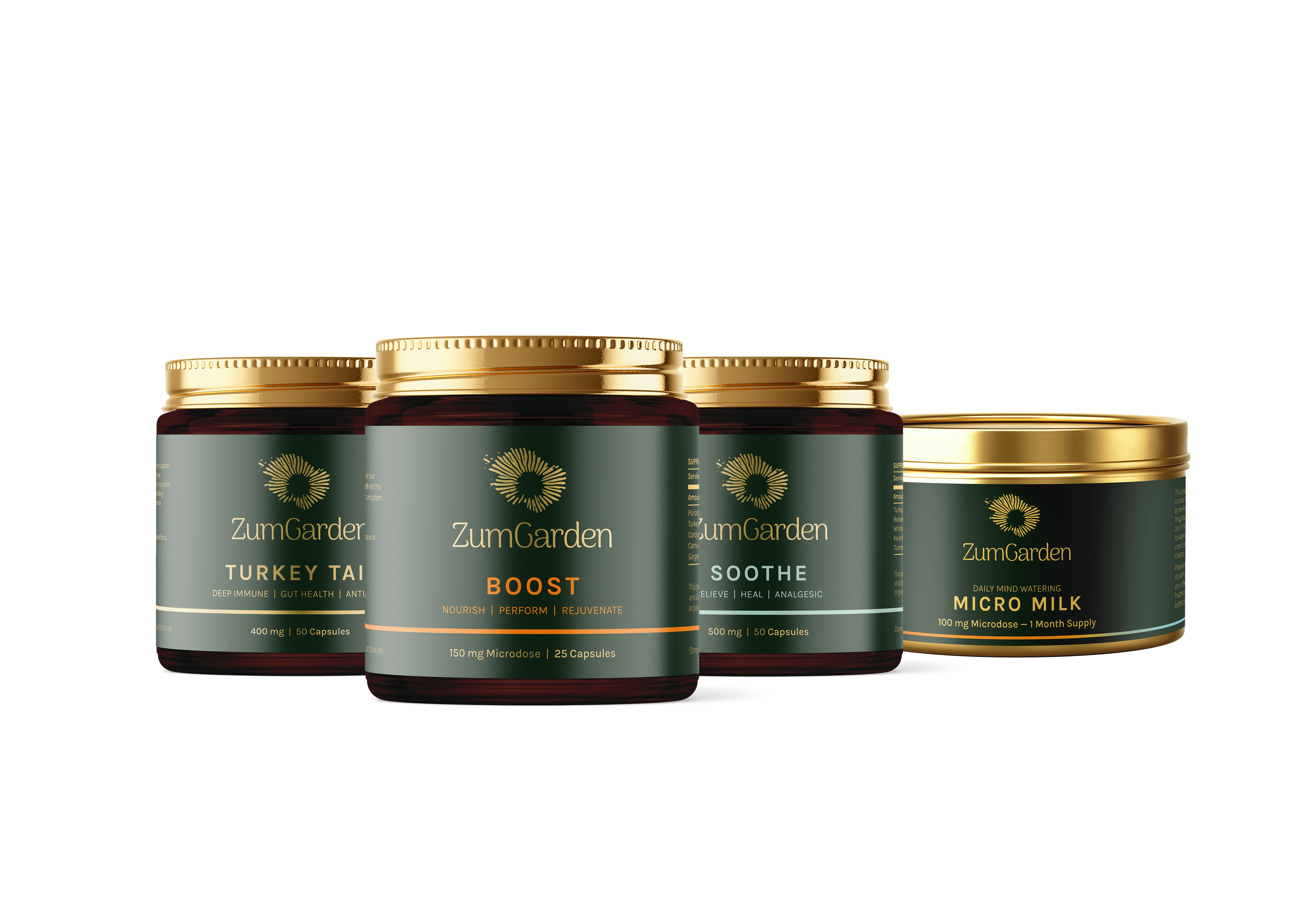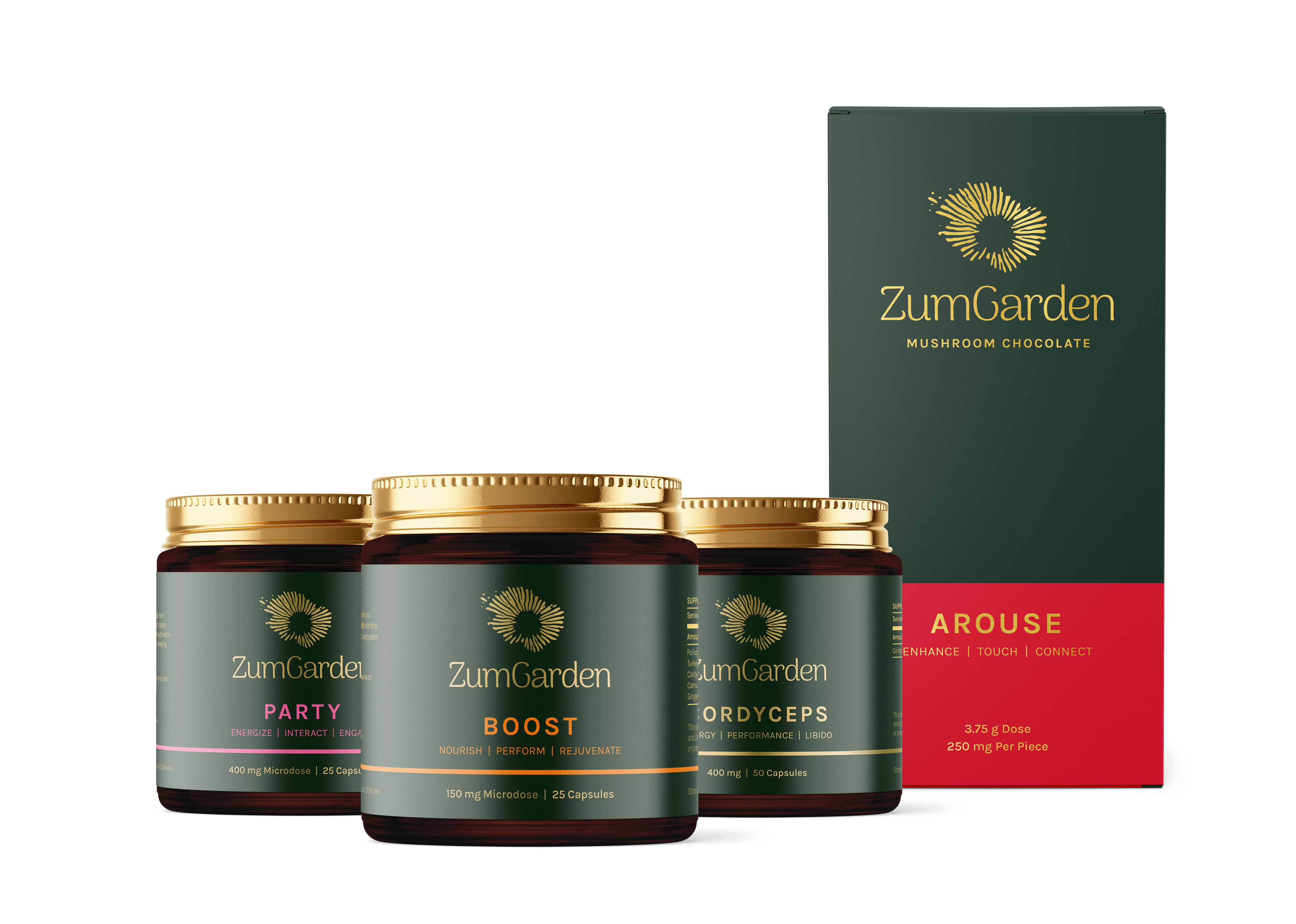She stood in her kitchen making school lunches,
the morning chaos swirling around her.
Then the microwave pinged.
Her mug of hot water was ready. She squeezed in lemon, pulled out a small jar from the pantry, and weighed out 0.14 grams of dried mushrooms.
It was time for Mama’s Microdose.
Eight months earlier, after four decades of prescriptions and talk therapy that barely touched her crippling anxiety and depression, she’d made a choice. A choice that, at the time, felt both radical and inevitable.
She started microdosing psilocybin.
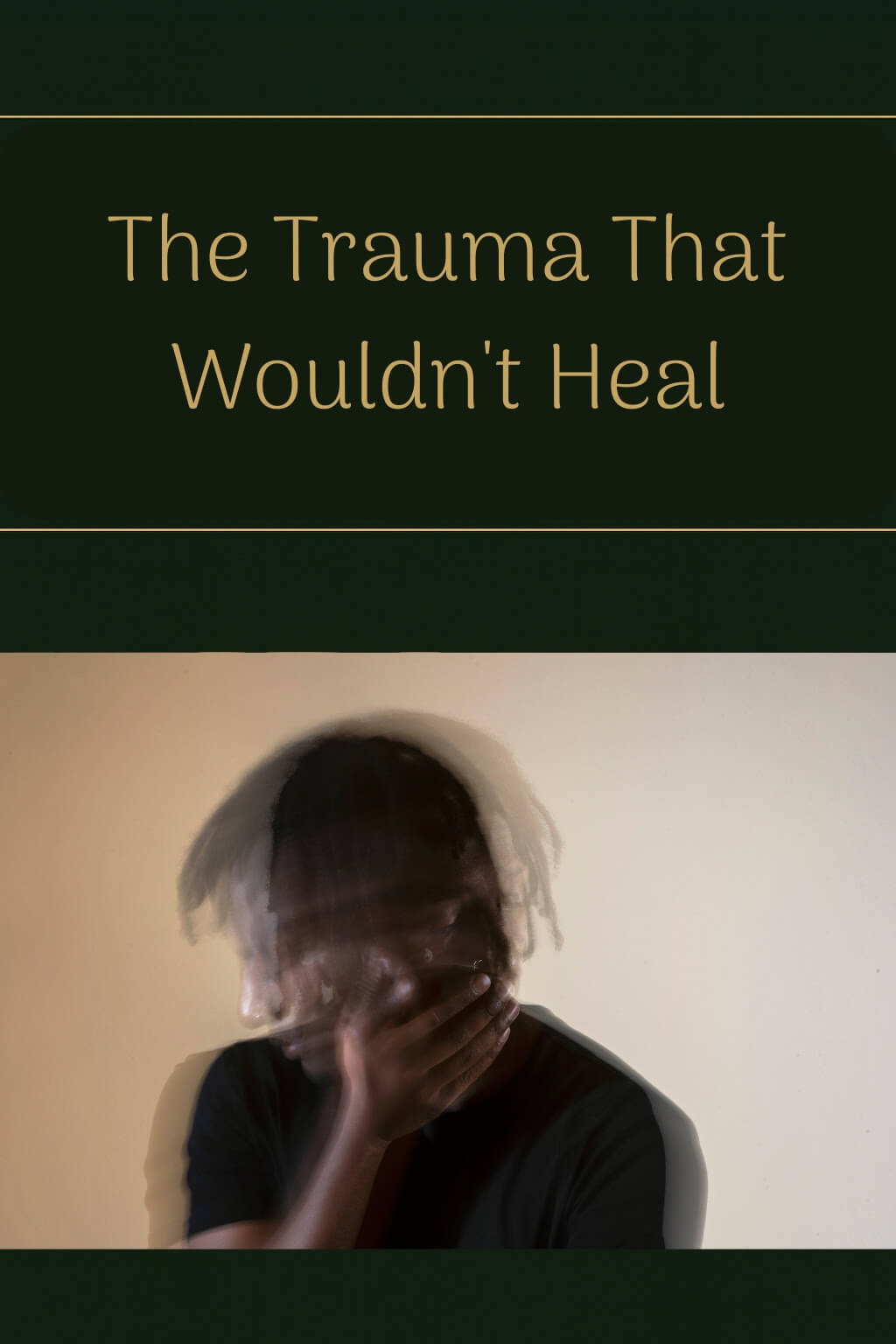
At 12 years old, she lost her only sibling to suicide.
Her brother Mark—her partner in life, her first friend, the person she grew up with roots intertwined—chose to die on a hill overlooking the Rocky Mountains. She was the last person to see him alive. The last person who could have stopped him.
For 41 years, her brain never forgot that morning.
Childhood trauma rewires your nervous system. It recalibrates your brain’s alarm system, floods you with stress hormones, and locks you into expecting catastrophe at any moment.
Her anxiety morphed into OCD. She became obsessed with keeping her daughters safe through meticulous control—perfectly arranged pillows, spotless counters, ham-free sandwiches checked multiple times. If everything was perfect, they’d be safe from the unthinkable.
But perfection is exhausting. And it doesn’t heal wounds.
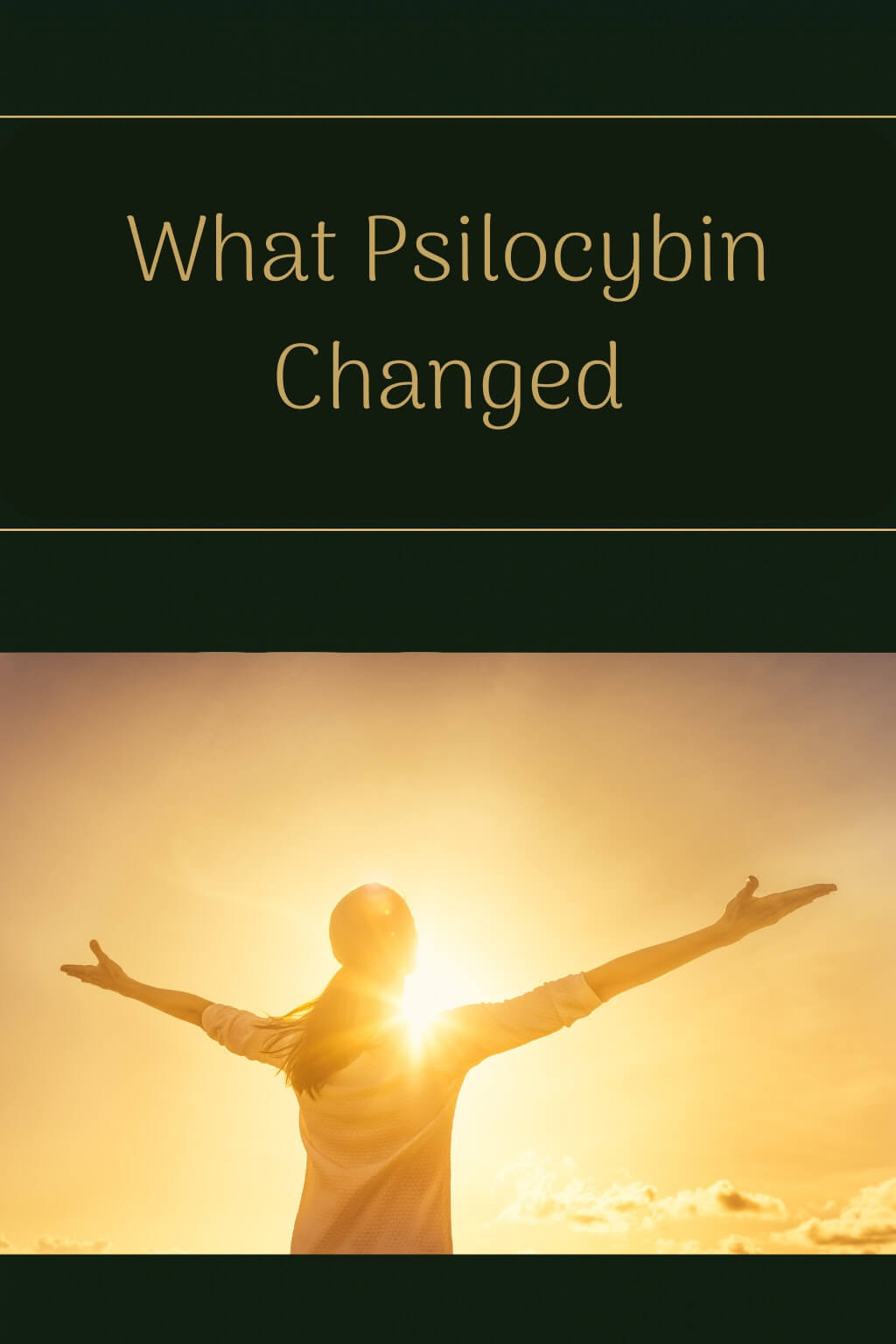
Eight months into microdosing, something shifted.
She’d notice the pillows were out of order, but stopped herself on the way to straighten them. In the pause she thought, “Hey, they don’t look bad that way.” And she left them. And her daughters survived the day.
These “disconfirming experiences” began accumulating. She could loosen her grip and things were still okay. She could exhale. After four decades, she realized she’d been holding her breath.
The medicine didn’t erase her trauma. It created space around it.
Space to process. Space to breathe. Space to remember who she was before grief hardened parts of her brain into scar tissue.
On a deeper journey with three grams, she became a 10-year-old running through Montana wildflowers, trying to catch up with her big brother. She spent 45 minutes face-down in her backyard, giving her sadness to the earth, tears pouring out until she was certain that spot would turn green.
And then, finally, she found Mark.
She saw his face—familiar as her own, sunlight behind his head like an aura. Mark was smiling. Mark was at peace. So now, at last, she could be too.
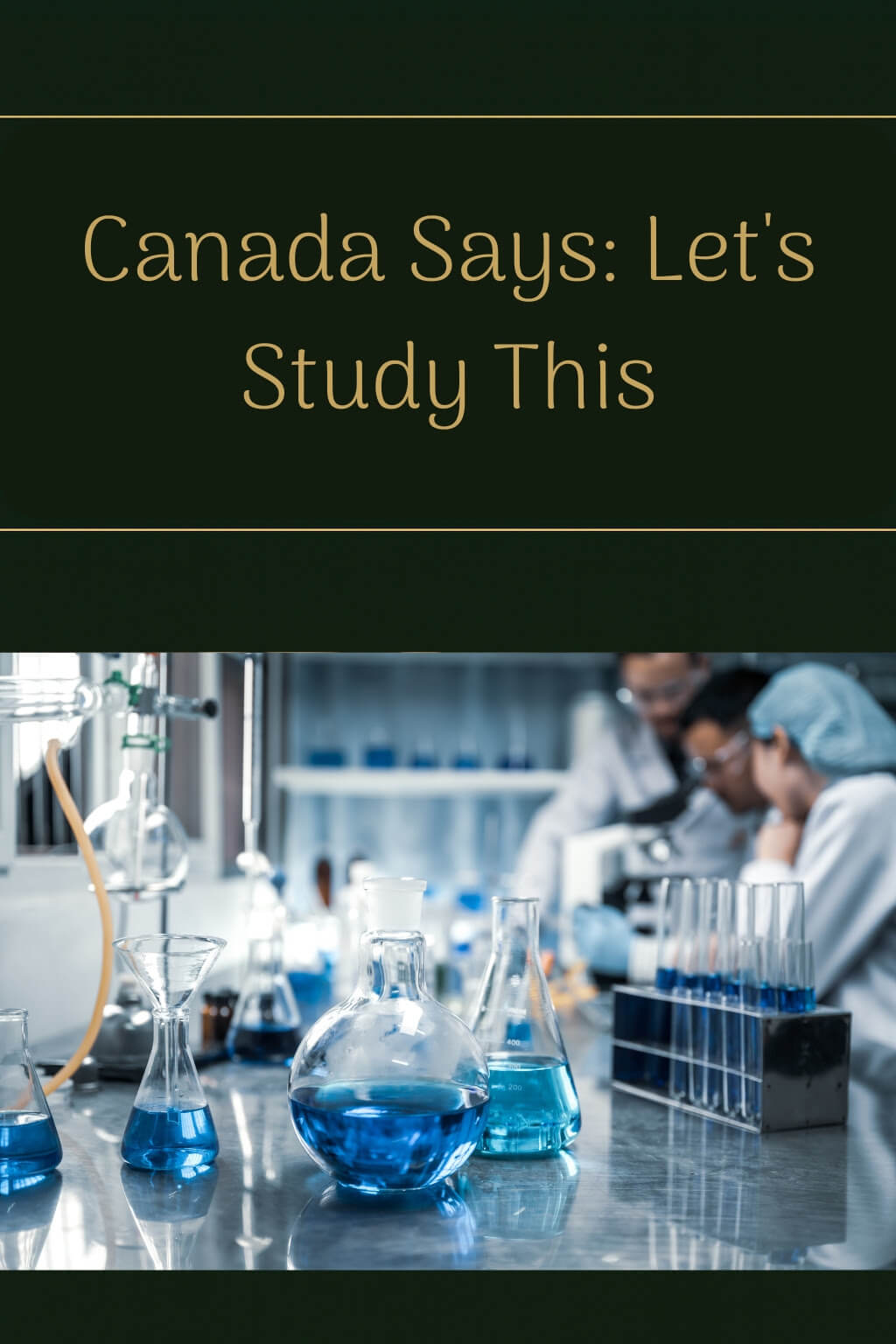
This woman's story isn't unique. It's becoming common.
People everywhere are discovering what indigenous cultures have known for centuries: psilocybin heals in ways traditional medicine sometimes can’t.
And now, Canada is paying attention.
A groundbreaking clinical trial is now underway in Kingston, Ontario—the first Health Canada-approved Phase 2 study examining whether microdosing psilocybin can alleviate generalized anxiety disorder.
Here's what makes this study revolutionary:
Up to 60 adults with debilitating anxiety will take 2-3 milligrams of psilocybin daily at home for four weeks, then switch to either more psilocybin or placebo for another four weeks.
No hospital monitoring. No all-day trips. No mystical experiences required.
Just small doses. Daily. At home. Living normal life.
Dr. Claudio Soares, the lead researcher, explains: “It’s not that uncommon to come across someone that says, ‘Oh, I’ve been microdosing with psilocybin and I’m feeling much better.’ But there are very few studies looking at microdosing in medical conditions, in a controlled setting.”

Generalized anxiety disorder has more than doubled in Canada—from 2.6% to 5.5% between 2012 and 2022. Traditional treatments like antidepressants and psychotherapy don’t work for everyone.
Millions of people need alternatives. Psilocybin might be one.
What you’re experiencing when you microdose isn’t placebo. It isn’t wishful thinking. It’s a real neurological shift that science is finally beginning to understand and validate.
The goal of this research isn’t just data—it’s destigmatization. As Dr. Soares says: “They have a medicinal value, a therapeutic value, that we need to study. Because if we don’t study, it remains in the underground—and then we don’t know exactly how to use them safely.”

Psilocybin is moving from underground to mainstream. From stigma to science. From whispered stories to clinical trials.
The woman making school lunches while microdosing? She’s not an outlier. She’s part of a massive wave of people choosing plant medicine over pharmaceuticals, choosing healing over managing symptoms, choosing to feel instead of numb.
And now Canada is joining them.
This trial could pave the way for legitimate access to psilocybin therapy. It could change how we treat anxiety, trauma, and depression. It could validate what so many already know from experience.
The future of mental health treatment is growing in the earth. And science is finally catching up.
Until next time,
Mushie Media of the Week:
"Heal With Mushrooms"
by: Cassandra Beaumont







